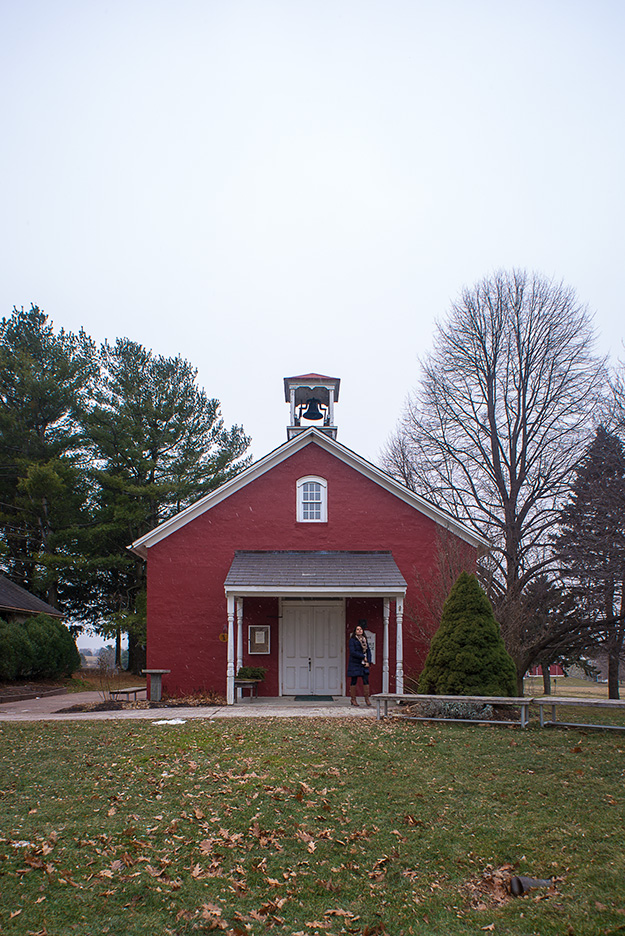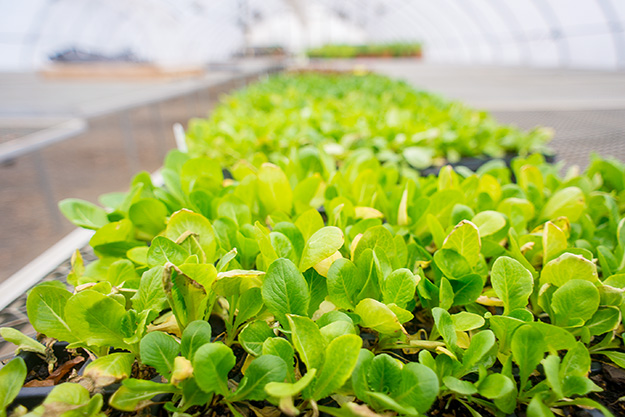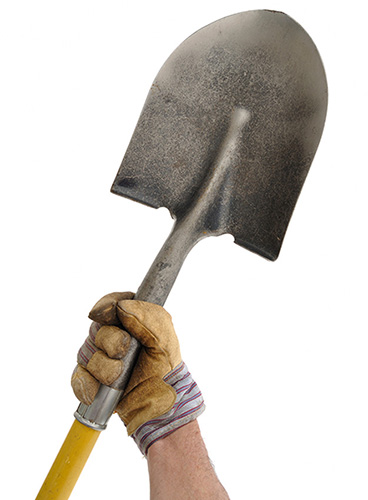Farmers and recreational backyard botanists have cultivated thousands of crops in the rich soils of berks county for hundreds of years. the tradition of raising livestock and growing plants spans various forms in this neck of the woods, from large-scale industrial corn and soybean operations to family owned, generational farms.
Along Route 222, down a windy country road, is a nonprofit organization that has been studying the intricacies of organic agriculture and soil health since 1947. For nearly 70 years, the Rodale Institute has pushed forward to define, research, perfect techniques and educate others on the benefits of organic farming. For Berks residents, this national gem is just a short car ride away. So how does one get involved at Rodale? Why is their research so groundbreaking? And what does this mean for Berks County residents? A deeper dive into what the Rodale Institute is all about gives even more reason to be proud of this place we call home.

History
J.I. Rodale, an entrepreneur from New York City, moved to Emmaus in 1930 to establish a publishing business, Rodale Inc. After buying a farm for his family in the 1940s, Rodale came across studies conducted by European botanist Sir Albert Howard that revealed a connection between soil health and personal health. He referred to these studies in his own personal gardening. By 1942, J.I. published Organic Gardening magazine to share his lessons and findings with readers. By 1947, the Rodale Institute nonprofit organization was officially formed to further research and explore the mantra in which J.I. Rodale had come to believe:
“healthy soil = healthy food = healthy people.”
The for-profit Rodale Inc. publishing company continued on, growing to acquire or create multiple magazines, including Prevention, Bicycling, Men’s Health and Women’s Health, as well as publish books like The South Beach Diet, An Inconvenient Truth and more. By 1951, J.I. was succeeded by his son, Bob Rodale, passing the family business on to the second generation.
Meanwhile, the Rodale Institute nonprofit organization grew in parallel to the for-profit publishing company. The Institute conducted studies on organic farming practices as industrial farming in America grew in scale throughout the 1960s and 1970s. They secured independent funding from sources outside of the Rodale Inc. publishing company to establish the 501-c 3 as completely independent from the for-profit publishing house. In 1973, the Institute purchased 333 acres of farmland in Kutztown, officially bringing the Institute to Berks.
In 1981, the Rodale Institute began the Farming Systems Trial (FST), a research endeavor aimed at understanding the differences between non-organic and organic agriculture. This FST would become the longest running side-by-side comparison of organic and non-organic agriculture, with more than 30 years of comparable data in current records.
Today, the Rodale Institute is still firmly rooted in research, but has also expanded to include classes for both professional farmers and the general public. The Institute also runs a quaint brick and mortar store (open year-round), which is filled with organic products, books and plants. Volunteers help to keep the Institute running and pushing the boundaries of what organic living means today.

The Mission
The mission of the Rodale Institute began with J.I. Rodale’s desire to prove his hypothesis that healthy soil leads to healthy food, which leads to healthy people and, ultimately, a healthy planet. Officially, the Institute declares their mission to be, “through organic leadership, we improve the health and well-being of people and the planet.” The Rodale Institute strives to complete this mission via four core values:
1. Empower each other to live our mission.
The Rodale Institute strives to empower not only career farmers but also consumers to live the mission of “healthy soil, healthy food, healthy people.” The Institute is a credible resource in the farming community, with companies like Applegate Meats (responsible for a particularly scrumptious brand of bacon) coming to Rodale in search of ways to help their livestock partners adopt organic, healthy, sustainable farming practices. Rodale has partnered with hog farmers to teach organic techniques and to transition large-scale industrial farms to chemical-free alternative methods. They realize the value of empowering others to make the organic switch on a daily basis. They’ve also partnered with local organizations like St. Luke’s Hospital and the Velodrome to bring farm fresh foods to their customers.
2. Make the farm a destination for inspiration.
The Rodale Institute has an amazing open-door policy when it comes to visiting the farm and learning first-hand about organic agriculture. One can visit seven days a week to see one or all of the demonstration gardens. A medicinal herb garden (sponsored by Boiron, a world leader in homeopathic medicines) features herbs like lavender, calendula and nightshade, with experts on the premises to explain their healing benefits. The homesteading demonstration garden features classic backyard garden plants, including tomatoes, peppers, onions, eggplant, wheat and even hops.
In addition to stopping by for an informal tour of the farm, all Berks County natives have the advantage of being close enough to take classes conveniently at the Rodale farm in Kutztown. The lineup of classes this spring includes a Beekeeping class April 18-19, a Chicken Cooping class April 25, and an introduction to Backyard Composting on May 2. For more information on the upcoming class schedule at the Rodale Institute Farm check out rodaleinstitute.org.
3. Publish research that is a catalyst for change.
Rodale lives this value by conducting ongoing research about soil health and organic gardening practices that is dispersed to the larger farming and health community annually. Now in its 33rd year, the Farming Systems Trial (FST) is the most famous of these studies. The Institute uses its vast farmland to grow and compare four different agricultural systems; one is manure-based, another all vegetable/legume, the third a no-till system, and the last a conventional industrial system which uses modern herbicides. These systems leverage different methodologies to grow the harvest and prevent against pests. The first three are different variations of organic farming, while the latter is representative of modern industrial farming techniques.
The Rodale Institute staff studies the soil throughout the seasons on all four of these systems and keeps meticulous notes on the carbon content, water retention, and nutrient levels of the different soils. They also closely monitor the crop yields, the profits generated from the various harvests, and the energy consumed in each farming system.
4. Be a clear voice for informed change.
The findings from these research projects are dispersed nationwide, with representation at USDA conferences and in publications from USA Applied Soil Ecology to the departments of agriculture at various universities nationwide. Rodale Institute has also partnered with organizations like the PA Farm Link and the PA Department of Agriculture to further expand the reach of their studies and impact.
Rodale puts its data into action by hosting an online course designed to help career farmers transition to organic agricultural practices. The trials conducted at Rodale are designed to “show farmers, researchers and the general public ways in which the National Organic Program Certification Standards can be employed and met on both small and large scales.”
They have taken their real-world findings and used them to inform not just agriculture, but also the broader organic and climate change movement.

How Do I Get Involved
So what does all of this mean for you? There is an amazing resource just a hop, skip and a jump away — a place where one can take classes on new hobbies (like beekeeping!), learn about groundbreaking research, volunteer to make an impact, shop for feel-good products and organic garden plants, and even host a wedding.
Visit Rodale online to learn more about hosting events, attending a class, picking apples during Apple Fest in September, and more. There’s no time like the present to get in touch with nature and learn from this expert resource.
SOURCE: Rodale Institute611 Siegfriedale Rd., Kutztown610.683.1400rodaleinstitute.org
By Lily Oswald | Photos by Mark Nester
















